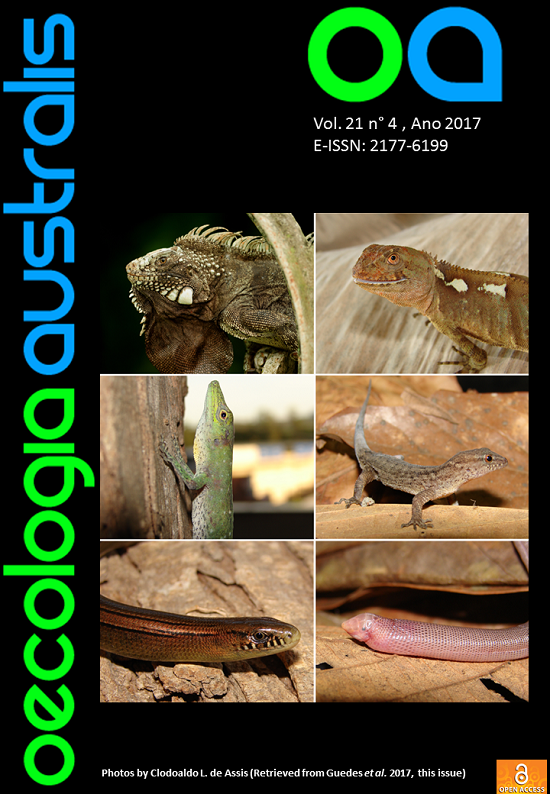FACTORS AFFECTING MAMMALIAN ENCOUNTER RATES IN TRANSECT SURVEYS: A CASE STUDY IN ILHA GRANDE STATE PARK, STATE OF RIO DE JANEIRO, BRAZIL
DOI:
https://doi.org/10.4257/oeco.2017.2104.06Keywords:
Atlantic Forest, distance sampling, linear transects, poachingAbstract
Distance sampling is a widely used technique. However, the influence of several factors on the observations when using this technique, such as speed of the observers, microhabitat, weather, and method of detection, are still unknown. We aimed to evaluate the effect of various factors in the encounter rates and frequency of detection of mammalian species using the distance sampling technique with transects in an Atlantic Forest area, Ilha Grande, state of Rio de Janeiro, Brazil. We evaluated the effects of the forms of detection, sighting time, and the climate conditions on mammals samplings. Between December 2003 and May 2005, 128 transects were undertaken by a single observer, totalling 401.3 km and 382 hours. We recorded 163 individuals of nine species of mammals. Several factors affected our study using the distance sampling by linear transects, which include the animal activity period (i.e., object of study), followed by climate conditions, and transect location. We also found lower encounter rates in transects located in the north part of the island, because of the interference of tourists and the poaching pressure, which must be associated with the higher human densities in the north of the island that would inhibit the presence of certain species. This study highlights the importance of considering these variables when estimating mammal population sizes using distance sampling technique.


